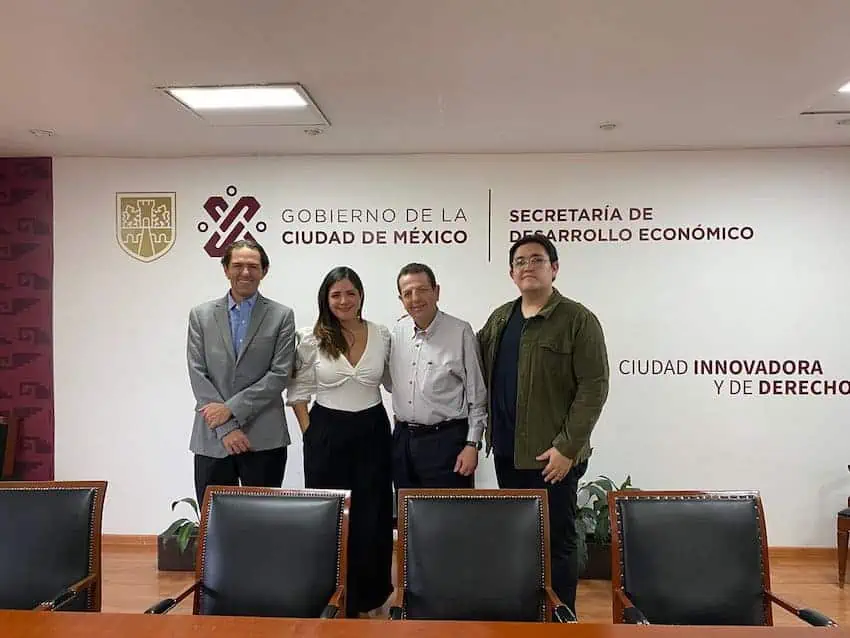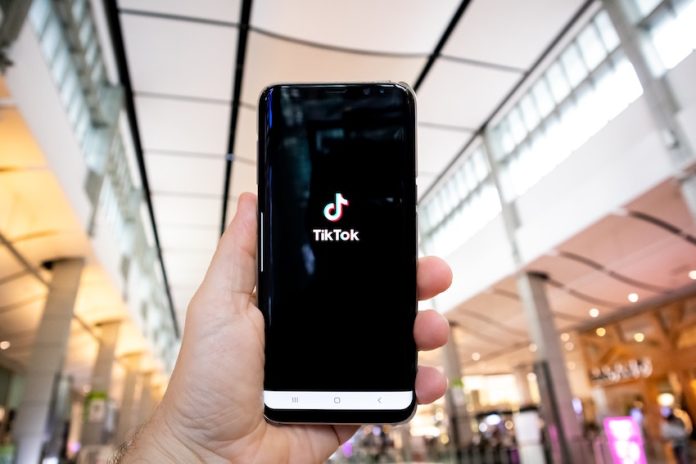The Ministry of Economic Development (Sedeco) of Mexico City signed a collaboration agreement with TikTok México to educate 33,000 businesses per year on how to best use TikTok for business, Sedeco announced Wednesday.
The Chinese social media app allows users to create, watch and share videos ranging from 3 seconds to 10 minutes in duration. The app reached 1 billion users in 2021 and had been downloaded 3.5 billion times as of mid-May. In Mexico, TikTok is the fifth most used application, according to data from the social media marketing website Hootsuite.

The agreement between Mexico City and the app is part of the capital’s efforts to strengthen e-commerce and digital marketing for micro, small and medium-sized enterprises (known by their initials MSMEs or MiPYMEs in Spanish).
According to Sedeco head Fadlala Akabani Hneide, TikTok will offer at least one free course per month to MSME entrepreneurs.
“The aim is to increase their sales,” Akabani said in a statement, adding that some 33,000 people will receive training during the program’s first year.
According to figures from the Mexican Association of Online Sales (AMVO), a nonprofit that supports and promotes development of e-commerce and the digital economy, retail e-commerce in Mexico grew by 23% in 2022, and the industry’s value reached 528 billion pesos (US $29.8 billion). AMVO has also reported that digital platforms are Mexican consumers’ main method of finding products.
✅ Compartimos el siguiente boletín de prensa respecto a la firma de un acuerdo entre #SEDECO Y @TikTokLatAM, que tiene por objetivo el capacitar en el uso de la plataforma a 33 mil emprendedores y Mipymes por año.
📰 Consulta todos los detalles aquí:https://t.co/4mob8WdGuZ pic.twitter.com/Or44Q3O6v9
— Secretaría de Desarrollo Económico (@SedecoCDMX) May 30, 2023
Most of the online shopping done in the country happens in Mexico City, Sedeco reported, with the capital representing 33% of all online purchases nationwide.
Edgar Rodríguez Rudich, head of public affairs at TikTok México, added that this agreement seeks to make technical and creative tools available to entrepreneurs and companies in order to help them promote their businesses’ digital presence.
Rudich cited the hashtag #TikTokMeHizoComprarlo (#TikTokMadeMeBuyIt) — a campaign to promote online purchases that has more than 440 million views in Mexico — as an example of this kind of promotion.
On its social media networks, Sedeco invited Mexico City entrepreneurs to enroll and participate in its upcoming free business courses in June.
“It’s time to grow your business,” the ministry tweeted.
Due to TikTok’s growing influence in the market, it is predicted to be a channel for boosting revenues during Mexico’s Hot Sale, a national weeklong sale campaign organized by AMVO. This year’s Hot Sale is currently ongoing and ends on June 6.
Efraín Medicuti, head of global business solutions for TikTok México, said that 89% of TikTok users are aware of the Hot Sale event and five out of 10 users plan to make a Hot Sale purchase this year.
Last year, he said, only 63% of TikTok users in Mexico made a Hot Sale purchase.
With reports from Expansión
